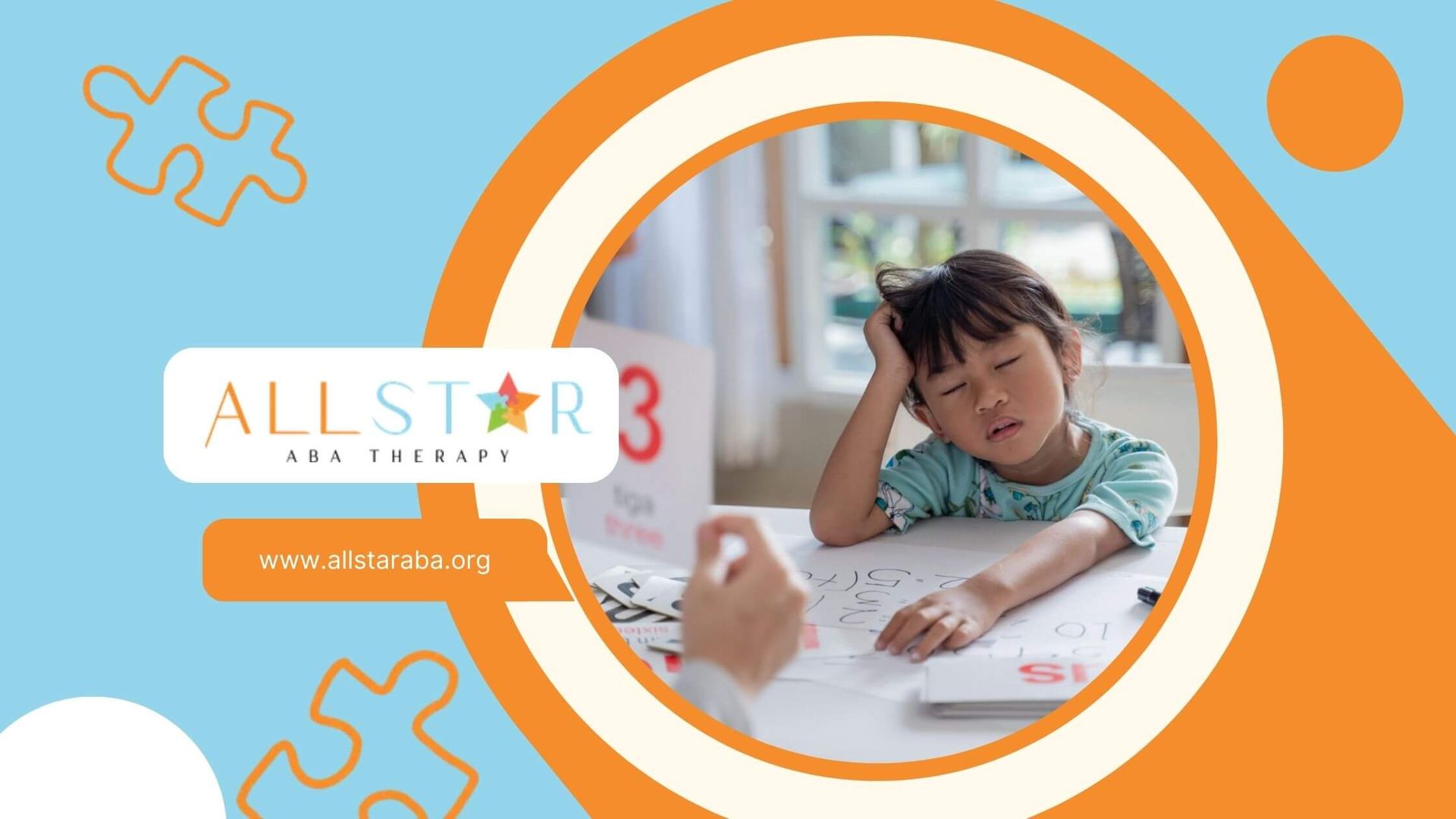New Paragraph
Is the RBT Exam Difficult? Tips & Strategies for Success
Navigating the journey to becoming a certified Registered Behavior Technician (RBT) can be both exciting and challenging. One of the biggest hurdles you'll face is the RBT exam, which often raises the question, "Is the RBT exam difficult?" While the answer can vary depending on your background and preparation, understanding the exam's structure, content, and common misconceptions can significantly boost your confidence and readiness.
In this guide, we’ll explore the factors that contribute to the perceived difficulty of the RBT exam and provide you with practical strategies to master it, ensuring you’re well-equipped to succeed.
Overview of the RBT Exam
The Registered Behavior Technician (RBT) exam is a certification assessment designed for individuals who work with individuals with autism and other developmental disorders. The exam evaluates knowledge and skills related to behavior analysis, ensuring that candidates are prepared to implement behavior-analytic services under the supervision of a qualified professional.
The exam consists of multiple-choice questions that cover a range of topics related to behavior analysis principles and practices. The total number of questions, format, and passing score are crucial aspects for candidates to understand as they prepare.
Importance of Becoming a Certified RBT
Becoming a certified RBT holds significant importance for young professionals in the field of behavior analysis. This certification not only enhances credibility but also opens up various
career opportunities. Employers often prefer or require certification for positions involving direct client service, making it a valuable asset.
Additionally, certification demonstrates a commitment to professional development and adherence to ethical standards. It ensures that RBTs possess the necessary knowledge and skills to effectively support individuals with behavioral needs.
| Benefits of RBT Certification | Description |
|---|---|
| Enhanced Career Opportunities | Access to a wider range of job prospects |
| Increased Credibility | Recognition as a qualified professional |
| Commitment to Ethical Standards | Assurance of adherence to ethical practices |
| Opportunities for Advancement | Pathway to further certifications and roles |
Understanding the RBT exam and the importance of certification can help aspiring professionals gauge whether they are ready to pursue this rewarding career path.
Is the RBT Exam Difficult?
Understanding the perception of difficulty surrounding the RBT exam is essential for aspiring professionals. There are several factors that influence how challenging individuals find the exam, as well as common misconceptions that may affect their preparation.
Factors that Influence the Perceived Difficulty
Several elements contribute to how hard individuals perceive the RBT exam to be. These factors include prior knowledge, study habits, and test-taking skills.
| Factor | Description |
|---|---|
| Prior Knowledge | Candidates with a strong background in behavior analysis may find the exam easier than those without. |
| Study Habits | Effective study strategies and routines can significantly impact performance. |
| Test-Taking Skills | Familiarity with exam formats and time management can influence how well one performs under pressure. |
| Anxiety Levels | High levels of test anxiety can make the exam feel more difficult. |
Common Misconceptions About the RBT Exam
There are several misconceptions about the RBT exam that can lead to unnecessary stress or confusion for candidates. Understanding these myths can help individuals approach their studies with a clearer mindset.
| Misconception | Reality |
|---|---|
| The exam is only for experienced professionals. | The exam is designed for individuals at various levels of experience, including beginners. |
| Passing requires memorization of all content. | Understanding key concepts and their applications is more important than rote memorization. |
| The exam is impossible to pass without expensive resources. | Many free and low-cost resources are available that can effectively prepare candidates. |
| Only perfect scores indicate success. | A passing score is all that is required; perfection is not necessary. |
By recognizing these factors and misconceptions, aspiring RBTs can better prepare themselves for the exam and reduce the perceived difficulty.
Preparing for the RBT Exam
Preparation is key for aspiring RBTs to successfully navigate the exam. Implementing effective study strategies and utilizing the right resources can significantly enhance their chances of success.
Study Strategies for Success
Developing a structured study plan can help individuals focus their efforts and manage their time effectively. Here are some strategies to consider:
| Strategy | Description |
|---|---|
| Create a Study Schedule | Allocate specific times each week for studying various topics related to the RBT exam. This helps in maintaining consistency. |
| Use Practice Exams | Taking practice tests can help gauge understanding and identify areas needing improvement. Aim to complete several practice exams before the official test date. |
| Join Study Groups | Collaborating with peers can provide motivation and different perspectives on challenging concepts. Group discussions can enhance understanding. |
| Focus on Key Concepts | Prioritize the most frequently tested topics, such as behavior analysis principles and ethical considerations. |
| Break Down Material | Divide study materials into manageable sections. This can make the content less overwhelming and easier to absorb. |
Recommended Resources for Exam Preparation
Utilizing a variety of resources can provide comprehensive coverage of the exam content. Here are some recommended types of resources:
| Resource Type | Description |
|---|---|
| Textbooks | Use foundational textbooks on behavior analysis and applied behavior analysis (ABA) to build a strong knowledge base. |
| Online Courses | Enroll in online courses specifically designed for RBT exam preparation. These courses often include instructional videos and quizzes. |
| Study Guides | Obtain study guides that outline the exam's structure and key topics, providing a focused approach to studying. |
| Flashcards | Flashcards |
| Websites and Forums | Explore websites and forums dedicated to RBT exam preparation. These platforms often contain valuable tips and shared experiences from others who have taken the exam. |
Navigating the Exam Content
Understanding the content of the RBT exam is essential for effective preparation. This section will break down the exam sections and highlight key concepts that candidates should focus on during their study.
Breakdown of Exam Sections
The RBT exam consists of specific sections that assess the candidate's knowledge and skills related to applied behavior analysis. Each section covers different content areas relevant to the role of a Registered Behavior Technician.
| Exam Section | Percentage of Exam |
|---|---|
| Measurement | 20% |
| Assessment | 13% |
| Skill Acquisition | 30% |
| Behavior Reduction | 20% |
| Professional Conduct | 17% |
Key Concepts to Focus on During Preparation
Candidates should concentrate their studies on key concepts within each section of the exam. Understanding these topics can enhance their chances of success.
| Exam Section | Key Concepts to Study |
|---|---|
| Measurement | Data collection methods, types of measurement, graphing |
| Assessment | Functional assessment, skill assessments, preference assessments |
| Skill Acquisition | Teaching strategies, task analysis, prompting procedures |
| Behavior Reduction | Functions of behavior, intervention strategies, crisis management |
| Professional Conduct | Ethical guidelines, supervision requirements, confidentiality |
By familiarizing themselves with the breakdown of exam sections and the key concepts within each, candidates can effectively direct their preparation efforts. This structured approach can help in answering the question, "Is the RBT exam hard?" by clarifying what needs to be mastered for success.
Tips for Mastering the RBT Exam
To excel in the RBT exam, it is essential to implement effective strategies for both time management and test-taking. These techniques can enhance performance and increase the likelihood of success.
Time Management Strategies
Effective time management during exam preparation and on the test day can significantly impact performance. Here are some strategies to consider:
| Strategy | Description |
|---|---|
| Create a Study Schedule | Develop a timetable detailing study sessions leading up to the exam. Allocate specific time blocks for each topic. |
| Set Milestones | Break down the study material into smaller sections and set deadlines for completing each section. This helps maintain focus and motivation. |
| Practice with Timed Tests | Take practice exams under timed conditions to simulate the actual test environment. This helps improve pacing and time allocation per question. |
| Prioritize Difficult Topics | Identify areas of weakness and allocate more time to study those subjects. Focus on mastering challenging concepts first. |
Test-Taking Techniques for Success
Implementing effective test-taking techniques can help manage stress and improve accuracy during the RBT exam. Below are some key techniques:
| Technique | Description |
|---|---|
| Read Questions Carefully | Take time to fully understand each question and what is being asked before selecting an answer. |
| Eliminate Obvious Incorrect Answers | If uncertain about an answer, cross out options that are clearly incorrect. This increases the likelihood of selecting the correct choice. |
| Manage Exam Time | Regularly check the remaining time and adjust the pace accordingly. Avoid spending too long on any single question. |
| Stay Calm and Focused | Maintain a positive mindset. If feeling anxious, take a few deep breaths to regain composure before continuing. |
| Review Answers If Time Permits | If time allows, review answers to ensure no questions were skipped or misread before submitting the exam. |
By applying these time management and test-taking techniques, individuals can enhance their readiness for the RBT exam and increase their chances of achieving success.
Conclusion
Successfully passing the RBT exam is a major milestone on your journey to a rewarding career in behavior analysis. While the exam may seem daunting at first, with the right preparation and mindset, it’s entirely achievable.
Remember, it’s not just about passing an exam; it’s about equipping yourself with the knowledge and skills to make a real difference in the lives of those you serve.
FAQs
Is the RBT exam hard to pass?
The difficulty of the RBT exam varies by individual, but with proper preparation, many candidates find it manageable. Factors like prior knowledge, study habits, and test-taking skills play significant roles.
What should I study for the RBT exam?
Focus on key areas like behavior analysis principles, ethical guidelines, and test-taking strategies. Utilizing practice exams and study guides can also be highly beneficial.
How can I prepare for the RBT exam?
Creating a structured study plan, taking practice exams, and using a variety of study resources, including textbooks and online courses, can help you prepare effectively for the RBT exam.
Need Support?
We're Here to Help!
Our experienced team is ready to assist you. Reach out today to discuss how we can support your child's development and well-being.
Get started with expert ABA therapy today.








